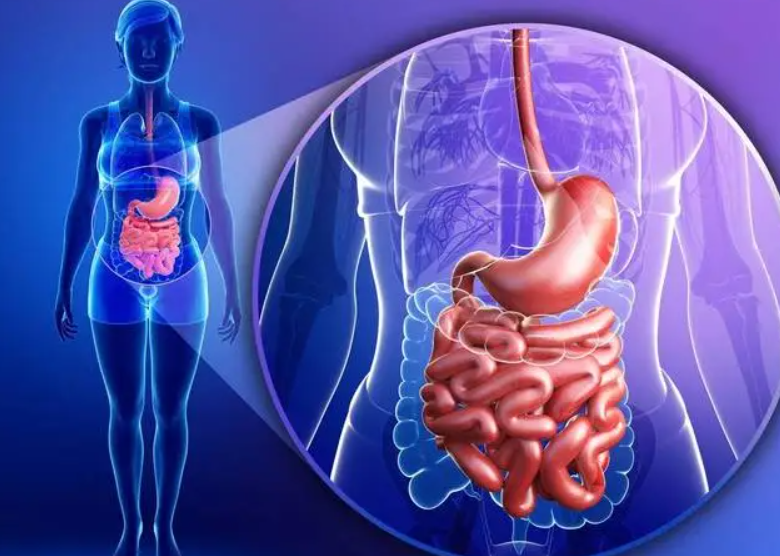
May 29 is World Gut Health Day. As we all know, the gut is an important part of the digestive system, carrying the role of food transport, digestion and absorption, and nutrient uptake. But what you may not know is that the gut is also the body's "second brain," which is closely linked to our mood swings. Is your gut healthy? Let's find out.
The gut is the "second brain" and the largest immune organ
What is the gut to you? An organ for digesting food, or a channel for excreting waste? To scientists, the gut is much more than that. First of all, the gut is the largest immune organ in the human body, and the gut controls more than 70% of immune cells, which is a barrier to human health. It carries out 365 days a year, 24 hours a day, to provide nutrients for the human body.
The gut is also our "second brain." It has its own thoughts and feelings, and can even influence our emotions and behavior. All of this is thanks to the abundance of nerve cells in the gut, which, like brain neurons, receive and transmit various messages, controlling the movement of the gut and digestion.
Research shows that the gut and brain are much more connected than we thought. Any emotion can affect the activity of the gut. For example, when we are nervous and anxious, there will be discomfort in the intestine, such as stomach pain and diarrhea. Because of this, we are not careful, it is easy to bring "industrial injury" to the intestine, affecting the health of the whole body.
The gut is also the body's "detox warrior". In the human body, more than 80% of toxins need to be excreted through the intestines. When we don't have a bowel movement on time, the toxins in our intestines stay in our bodies for a long time, causing serious harm to our health. For example, diseases such as colon cancer, cardiovascular and cerebrovascular diseases, and skin pigmentation are all related to the accumulation of toxins in the gut.Is it normal for you to skip lunch and eat after work, no matter how late it is? In daily life, these poor diet and rest habits make the intestine often face "overload operation", and the health problems brought by this have become a problem for many people. As an important digestive and immune organ of the human body, intestinal health is closely related to our lives. What bad habits make your gut sick? How can we prevent it?
The effect of emotional state on gut health is easily overlooked
What factors affect gut health?
In daily life, gut health is affected by many factors. Doctors believe that poor eating habits, lack of exercise, emotional stress and an imbalance in the gut flora, these four factors are the key to gut health. Among them, the impact of emotional state on intestinal health is often overlooked.
We have to pay attention to our mood, and our gut senses some of our own emotions just like our brain does. When you are anxious, anxious, or angry, your gut responds accordingly. Some patients will feel that when I am worried or nervous, there will be constipation and diarrhea in the intestine, and when I am relatively emotionally stable, these symptoms will disappear.
Regular physical examination is the way to check intestinal health
How can you tell if your gut is healthy?
So how can we tell if our gut is healthy? Experts say that there is no gold standard for intestinal health, but regular check-ups are an important means to maintain intestinal health.
Because it is true that there are some intestinal diseases, including precancerous lesions of our colon and colorectal tumors, such as polyps, which are asymptomatic, then our fixed, regular, standardized health examination is a good way to help us check whether the intestinal health.
Colonoscopy is recommended for adults aged 40-45 years
How long is a colonoscopy "valid"? Who should be screened regularly?
Colonoscopy is the gold standard for detecting intestinal diseases, and it is also an effective way to screen for early intestinal cancer. So, how long is the "expiration date" of a colonoscopy? Who needs regular screening?
In general, we recommend starting at the age of 40-45 to do a colonoscopy, of course, after a colonoscopy is not everything. If there is no problem, you can go to the review after 5 years, but if some lesions are found in the intestine, it should be determined according to the specific situation to determine the review time.
Avoid unhealthy eating habits and excessive intake of cold drinks
How to care for intestinal health in life?
At present, it has entered the summer, the weather is hot, the humidity increases, the bacteria multiply quickly, and the food is easy to deteriorate. Therefore, summer has also become a high incidence season of intestinal infectious diseases. How can we take care of our gut health in life?
Make sure there is a clean level of food. Raw and cold food, we should pay attention to its storage period, shelf life. Because it is hot in summer, we may eat some cold drinks of this kind of raw and cold food, even if it is not contaminated by bacteria, but after a large intake, our body may be particularly hot outside, and then suddenly ingest too much of this cold food, it will cause gastrointestinal discomfort, and even cause abdominal pain and diarrhea.

